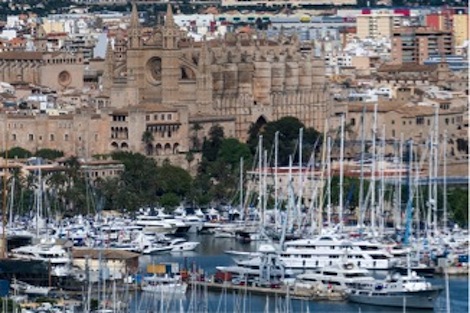Tackling VAT in the Balearics
Following an informative and well-attended meeting hosted by Network Marine Consultants in Palma regarding the status of non-EU flagged yachts in the Balearics, SuperyachtNews.com speaks to Patricia Bullock about the main issues raised during the proceedings.…
SuperyachtNews.com recently announced that non-EU flagged vessels are now able to apply for a charter licence and carry out charter activity in the Balearics on the condition that there is no similar EU-flagged yacht available for the same period. One of the main areas of concern about the new ruling has been how this would be proved, and also would this mean that the charter licences would subsequently be issued on the basis of a single charter, and would be required to be renewed for the next charter.
“Deudero was completely clear that the local administration currently have no specific plans to police the matter, and will be issuing annually renewable charter licences to non-EU flagged yachts,” explains Patricia Bullock, managing director of Network Marine Consultants. “They will also accept a good faith declaration from the charter broker, or other appointed representative, that no other acceptable vessel is currently available, meeting the requirements of the charter client.”
Another hot topic under discussion was the recent activity of Palma customs officials, and their interpretation of the VAT status of non-EU flagged vessels. “To summarise this, Palma customs officials are taking the view that non-EU flagged vessels, which have accounted for VAT within EU VAT territory but subsequently travel outside of the EU, upon returning to EU VAT territory must once again account for the VAT,” adds Bullock. “This interpretation of the law is not consistent with the view held by other customs authorities in other EU states, and even within Spanish national territory. However, direct intervention is required from the national government to clarify the interpretation of the law and instruct the customs officials accordingly.”
Deudero explained that the customs officials still receive instructions from Madrid, as this area of administration has not yet been devolved to the local administration. As a result, he personally is not able to dictate to customs how they go about their business, but he is aware of the concerns arising in the local nautical sector. The matter has now been brought to the attention of the national government via the efforts of nautical sector business associations AENIB, AEGY and ANEN.
Profile links
NEW: Sign up for SuperyachtNewsweek!
Get the latest weekly news, in-depth reports, intelligence, and strategic insights, delivered directly from The Superyacht Group's editors and market analysts.
Stay at the forefront of the superyacht industry with SuperyachtNewsweek
Click here to become part of The Superyacht Group community, and join us in our mission to make this industry accessible to all, and prosperous for the long-term. We are offering access to the superyacht industry’s most comprehensive and longstanding archive of business-critical information, as well as a comprehensive, real-time superyacht fleet database, for just £10 per month, because we are One Industry with One Mission. Sign up here.
NEW: Sign up for
SuperyachtNewsweek!
Get the latest weekly news, in-depth reports, intelligence, and strategic insights, delivered directly from The Superyacht Group's editors and market analysts.
Stay at the forefront of the superyacht industry with SuperyachtNewsweek




